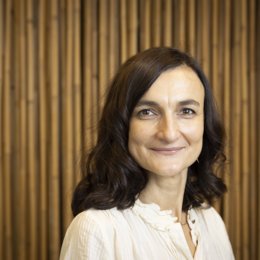Power Electronics: energy access
I am Jelena Popovic, and I am an associate professor in the group Power Electronics & EMC (PE), within the faculty of Electrical Engineering, Mathematics and Computer Science at the University of Twente. My research field is Energy Access.
Background
My background is in Power Electronics, and for a number of years my main research interests were in power electronics packaging and integration technologies. In other words, the technologies to make power electronics converters smaller, cheaper and more efficient. I stumbled upon Energy Access as a field almost by accident, fell in love with it, and am very grateful for the opportunity to work on it at the University of Twente.
Energy Access is about enabling access to affordable, clean and reliable electricity for nearly 1 billion people worldwide who have no access and over 2 billion with unreliable access. It is at the heart of the Sustainable Development Goal 7 (SDG 7 first target, 7.1) and underpins almost all of the SDGs. Access to energy is transformative for people’s lives and enables them to improve their livelihoods, health, education, and inclusion to modern society. For researchers and technologists, it is an opportunity to build a new kind of grid: decentralized, renewable, bottom-up, and adapted to the context, with power electronics as the key enabling technology.
Technology, however, is only one facet of the solution, and must be developed (and deployed and maintained) for and within the social, economic and cultural context. Otherwise, it becomes another case of the developed world pushing solutions it has and knows how to make without knowing what users really want and need. This calls for collaborative, interdisciplinary research, which is why I collaborate with researchers from other groups and faculties at the UT.
In the years to come
My mission is to co-create a UT-wide horizontal research and education programme in Energy Access. A programme that brings together researchers and lecturers from different faculties and disciplines, and with the UT’s 'High Tech, Human Touch' approach, contributes to solving this worthy challenge.
Education
New generations of students and researchers increasingly want to engage in more than just excellent science. My own experience, as well as that of my PELS colleagues involved in Empower a Billion Lives, shows that there is a great interest and motivation among students and young professionals to engage in this field.
This involves not only coursework (I have developed a multidisciplinary course on Energy Conversion: People, Planet, Prosperity and am involved in the BSc minor Energy Transition Perspectives), but also lends itself to other forms of learning - challenge based learning, service learning, student exchanges and others.
Collaborations
Access to energy is a sector with a huge diversity of stakeholders: governments, individuals, international organisations, financial institutions, academia, civil society organisations, etc. Through my research and engagement with my home IEEE society, the Power Electronics Society (PELS), and its flagship initiative Empower a Billion Lives, I collaborate with various organisations such as the IFC and the World Bank, the International Renewable Energy Agency (IRENA), Sustainable Energy for All (SEforALL); industrial networks such as the off-grid solar network GOGLA, the energy efficiency agency CLASP, start-ups, SMEs and large enterprises; national and local governments and academic institutions in the Global South and the EU.

